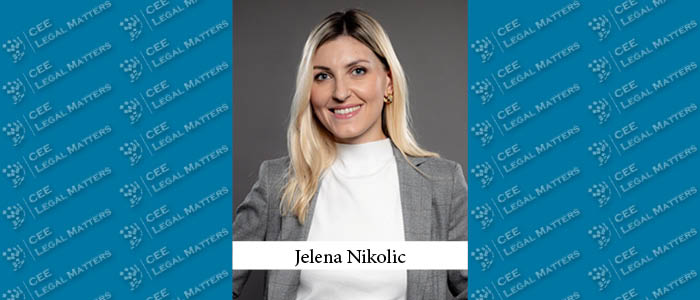Once implemented, those initiatives will require significantly more efforts from parties involved in trade and foreign investments to ensure regulatory compliance. The pursued security aims will lead to enhanced monitoring, assessments and controls being put in place, which will have to be factored into a reframed regulatory compliance approach by affected parties.
Serbian Competition Commission Closes the Bid-Rigging Investigation with Sanctions
By its decision dated 29 December 2023, the Serbian Competition Commission determined that the companies KTG Solucije and Eco Sense from the town of Subotica (in Serbia) entered into a restrictive agreement by colluding in public procurement procedures (i.e., bid rigging).
New EU regulation on Digital Evidence Opens Up Risk of Data Misuse
The new EU regulation on electronic evidence will enable law enforcement authorities from one EU member state to order service providers in other EU member states to surrender digital evidence. Providers who fail to comply within ten days or, in urgent cases, within eight hours, could face fines of up to two percent of their global group turnover.
Trademark Revocation Authority Passed from Courts to Turkish Patent and Trademark Office
Article 26 of the Industrial Property Law No. 6769 ("IPL") authorises the Turkish Patent and Trademark Office ("Office") to revoke trademarks in cases set out in the relevant article. According to IPL Article 192/1-(a), this provision was set to come into effect seven years from its publication date, i.e., 10 January 2024. Additionally, 4th provisional article of the IPL stipulated that this authority would be enforced by the courts until that time. Thus, with the expiration of the aforementioned seven-year period, the authority for the administrative revocation of trademarks was passed from the civil courts to the Office as of 10 January 2024.
Czech NIS2 Implementation: Engage a Diverse Group of Professionals, Not Just IT Guys
Anticipated completion of the European NIS2 Directive's integration into Czech law is set for late 2024, facilitated by the new Czech Cybersecurity Act (CSA) and associated decrees. This legislative shift will impact an estimated 6,000 to 10,000 Czech companies, formerly exempt from cybersecurity regulations, necessitating the adoption of measures for compliance. Since the CSA is a complex legal regulation, it is advisable to engage a spectrum of experts, extending beyond IT to include legal and compliance professionals, in this transformative process.
Medical Unfitness – Who Shall Terminate the Employment In Hungary?
It is a common labour law problem in Hungary that in case the employee, due to medical reasons, becomes permanently unfit for the job he previously fulfilled, the employer does not amend or terminate the employment (the latter of which would entail an obligation to pay severance pay), but keeps the employee on “idle time” without giving him tasks and salary. In our article, we examine this issue in light of the recent decision of the Hungarian Supreme Court.
Bitcoin ETF Approval – Opening New Avenues for the Billion-Dollar Market
The U.S. Securities and Exchange Commission (SEC), the agency responsible for regulating the securities markets and protecting investors in the U.S.A, granted approval to 11 spot Bitcoin exchange-traded funds (ETF), in its Approval Order on 10 January 2024.
Shortage of Critical Medicines: is a European Solution Available?
There has been much discussion about protracted shortages of critical medicines in the Czech Republic over the last couple of months. Many national measures have been adopted. At the European Union level,the Voluntary Solidarity Mechanism for medicines has been put in place.
Notable Changes Hungarian Corporate Law Regulations Effective from 1 January 2024
In Hungary, a legal entity can separate into multiple legal entities through division or spin-off. In the case of a spin-off, the original legal entity continues to exist, and a portion of its assets is transferred to the newly formed legal entity as its successor.
How to Handle Disciplinary Dismissals Situations
Employment contracts can only be terminated on specific grounds listed in the Bulgarian Labor Code. There are over 50 grounds for termination, each with its unique facts, documents, and procedures.
Montenegrin Competition Agency Finds a Restrictive Agreement by Object on the Market of Services Provided by Tourist Agencies
On 28 December 2023, the Agency for the Protection of Competition of Montenegro (the “Agency”) adopted a decision regarding its finding that the pricelist adopted by the Association of Tourist Agencies of Montenegro (the “Association”) concerning services provided by the tourist agencies amounts to a restrictive agreement by object under the Montenegrin Competition Law.
How will DORA affect ICT providers?
Regulation (EU) 2022/2554 of the European Parliament and of the Council of 14 December 2022 on digital operational resilience for the financial sector and amending Regulations (EC) No 1060/2009, (EU) No 648/2012, (EU) No 600/2014, (EU) No 909/2014 and (EU) 2016/1011 (“DORA”) contains a number of requirements for ICT service providers, which will become binding on January 17, 2025. Therefore, 2024 will be a year of intensive work on the part of service providers to ensure compliance with the new, demanding regulation.
Legislative Changes Supporting the Restart of Wind Power Development
Since the beginning of the year, the Government has modified the previous legal environment concerning the development of wind power plants in several areas to increase wind power capacity. According to the Ministry of Energy's communication so far, wind power capacity is expected to increase to around 1,000 MW by 2030.
Work on a Definite Period is Not Probationary Work!
Insufficiently precise provisions of the law, unharmonized court practice, as well as the average duration of the employment disputes, were affected creating the “fear of litigation” amongst many employers. Due to the stated reasons, instead of unilateral employment termination, even in cases when there is firm evidence confirming its lawfulness and validity, the employers tend to execute the mutual agreement on employment termination, as well as to pay certain one-time compensation on the said basis.
Important Regulations in Banking Legislation Regarding Risk Groups, Credit Limitations and Credit Operations of Banks
The Regulation on Determination of Risk Groups and Credit Limitations ("Risk Groups Regulation") and the Regulation on Credit Operations of Banks ("Credit Operations Regulation") prepared by the Banking Regulation and Supervision Agency ("BRSA") were published in the Official Gazette dated 21.12.2023. Accordingly, the provisions regarding the determination of risk groups and calculation of credit limits in the Regulation on Credit Operations of Banks dated 1.11.2006 ("Former Regulation") were adapted to the Risk Groups Regulation and detailed regulations on the determination of risk groups were introduced. With the Regulation on Credit Transactions, the Former Regulation dated 1.11.2006 was repealed, and other provisions of the Former Regulation were reviewed and reorganised.
Does the Fear of Misuse of Personal Data Give Rise to Compensation?
Under the GDPR, data subjects may claim compensation if they suffered damages because the controller infringed his obligations under the GDPR. Does a data theft by cybercriminals mean that the controller has not adopted appropriate data security measures meaning that he failed to comply with his data protection obligations? Can the data subject claim compensation if his only damage is the fear that his personal data was misused? The Court of Justice of the European Union answered these questions in a fresh decision which will be analysed in this short article.
The Protection of Gender Identity Under the GDPR
Although gender identity does not constitute sensitive data under the GDPR, its legal protection is nevertheless very robustly designed. Companies that choose to disregard it may face claims for damages and fines.
Green Light for Wind Power Projects in Hungary
In December 2023, the Hungarian Government significantly eased the regulatory conditions for the establishment of wind turbine projects in Hungary in order to comply with EU requirements and enhance the utilization of green energy.































